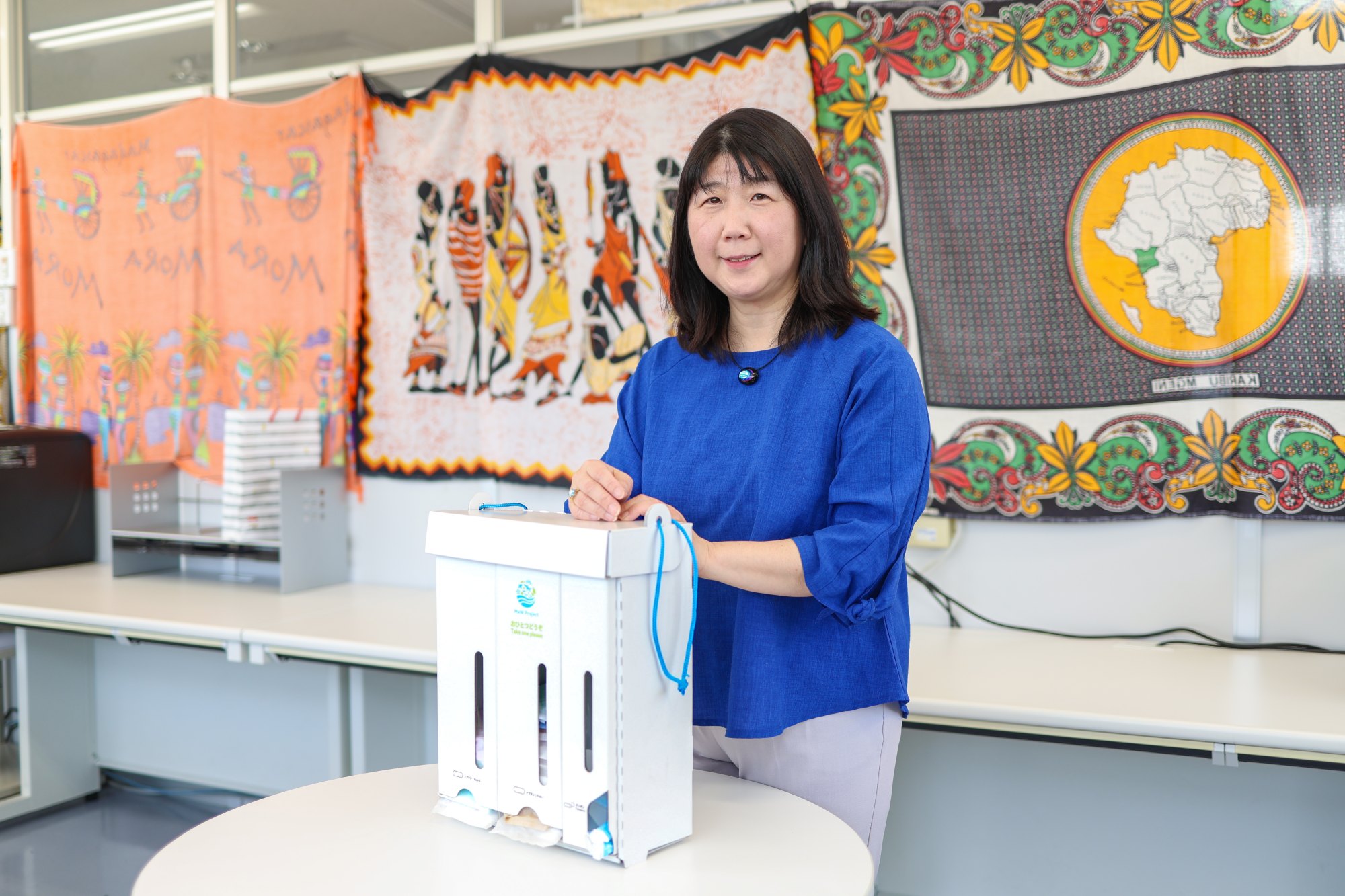
Professor Elli W Sugita, Graduate School of Human Sciences
"Breaking the silence on menstruation to achieve menstruation equity and dignity"
Menstruation, which is quite personal and not generally widely discussed, has been recognized by the global community as an issue that needs to be resolved. I have been researching social aspects of menstruation since around 2012. Originally, I came to know about the reality of menstruation from my research in Africa, and I began to conduct research on menstruation from the perspective of cultural anthropology. For instance, in rural Uganda, menstruation is considered taboo, and I have seen girls who did not know about menstruation at all until their first menstrual period, and girls who were absent from school during menstruation. Menstruation is a physiological phenomenon in humans that can be seen throughout the entire reproductive period (from menarche to menopause), except during pregnancy, the postpartum period, and lactation. However, the menstrual experience of menstruators [1] is greatly influenced by the cultural and social values of each region, as can be seen with the Ugandan girl mentioned above. Interestingly, our research has shown that the way menstruation is perceived has certain similarities worldwide. For example, in Japan, menstruation was historically treated as impure. Even today, only girls are gathered in classrooms to learn about menstrual management in most elementary schools. Men's lack of knowledge and limited understanding of menstruation due to such customs was also common throughout the world. By nature, all menstruators have the right to menstruate, and there should be more social understanding and support for menstruation. However, since education on menstruation has been limited to girls only or is too hidden, and because menstruation is a very personal matter, despite the existence of various problems, there are certain realities and issues that have not become apparent until now.

In the last few years, there has been a change in social awareness and knowledge about menstruation. In 2016, the term "period poverty" was coined by the British media to refer to the lack of access to sanitary products due to economic deprivation, inadequate sanitary conditions, and lack of education. In the United Kingdom and other areas, sanitary products are provided free of charge at schools, and some countries and states have made them tax-exempt. In Japan, "period poverty," especially among those who cannot afford sanitary pads due to economic hardship, has been socially recognized since around 2021.
International organizations such as the United Nations Children’s Fund (UNICEF) have also recognized menstruation as an important development issue in the international community, especially in the field of international cooperation (development assistance), and have stated that improving menstrual health and hygiene (MHH) is essential for the well-being and empowerment of women. SDG 6, "Provide safe water and sanitation worldwide," also includes issues surrounding menstruation.

Cherish menstrual well-being
I believe that the well-being of menstruation is important. The MeW project [2] that we are promoting is a project aimed at menstrual well-being. As part of this project, we have developed a dispenser that facilitates free provision of sanitary products in private restrooms. The installation of sanitary products started at my graduate school in 2021, and now there are over 200 dispensers at the university. We have also expanded to other educational institutions and municipalities, providing some 30 organizations with about 1,700 dispensers, with the goal of making menstrual products available in restrooms just like toilet paper. By offering a choice of sanitary products, we hope that users will think about their bodies in terms of menstruation and become more aware of the environment issues that can possibly be caused by the waste of certain menstrual products. I believe that this will lead to the promotion of a wide range of menstrual well-being.
There are many activists hard at work in addressing these social issues, striving to change society by providing support to those affected. I myself would like to do what I can from an academic standpoint to contribute back to society. This means gathering information from a broad perspective, deepening my understanding, and translating what I learn into suggestions and activities that will lead to the betterment of society. In addition, I believe that menstruators are not the only parties involved in this issue, and that we, regardless of our gender, should all think about this issue together while standing by each other.
By dealing with the topic of menstruation, we can all be in a position to bring up the equity and dignity of menstruation, which is not gender-specific. And I believe that by doing so, we can take a step towards gender equity.
[1] Menstruator describes anyone who has a period and does not define a gender.
[2] MeW project: https://mewproject-osaka-u.jp/#
For more information: https://researchmap.jp/read0155208?lang=en
Text: Mayumi Mochizuki/Edit: Christopher Bubb